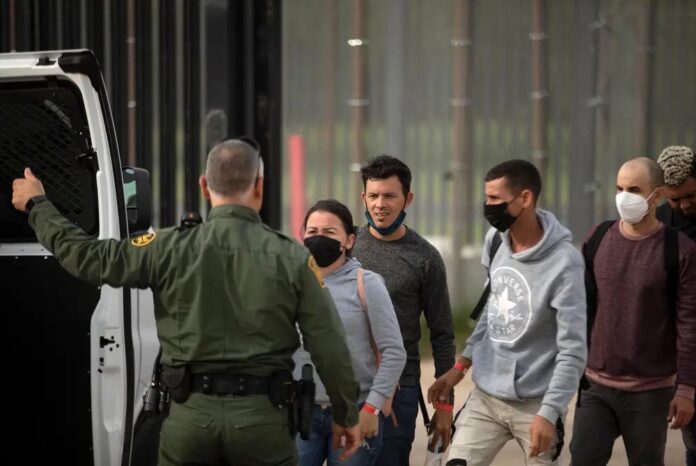Federal, state and local agencies are moving methodically to address the current situation at the U.S.- Mexico border. Amid the high rate of apprehensions at the border, the real challenge is a multifaceted humanitarian crisis — one that stems from a multitude of factors in migrants’ home countries and is exacerbated by our outdated immigration system.
To address it effectively, politicians and other influential voices must first stop weaponizing the border for political gain. Many of the migrants at our border are fleeing persecution, gang violence, extreme poverty and social unrest.
The complex situation at the border requires both short- and longterm solutions that avoid partisan political pitfalls.
Right now, the government needs to emphasize both order and compassion. Border communities like mine, as well as faith groups and nonprofits, are responding with compassion — as we have in the past. We need support from our state and federal leaders.
We’re also responding with COVID tests and quarantines when necessary. Recent word that the administration will vaccinate migrants taken into custody along the border is promising. (To be clear: There has been no evidence that migrants are a major factor in the spread of COVID-19. Nonetheless, concerns are legitimate and should be addressed.
Not least, the administration should send more immigration judges and asylum officers to the border to resolve asylum claims quickly.
Our laws grant everyone the right to make an asylum claim and have their case heard. If we respond to the increase in migrants by shutting down the asylum process and closing our doors, we’ll only drive people to take more desperate measures and negatively affect public safety.
In the long term, the federal government should focus on the root causes of migration and do more to weaken criminal enterprises that benefit from our current immigration system. Here’s where Congress can help: Building additional legal pathways for children and other migrants would reduce the influence and power of smugglers, human traffickers and drug cartels, which thrive on the fear and uncertainty created by our existing system.
More opportunities to immigrate legally also would decrease pressures at the border by providing migrants other options. Coming to the border should not be the only way for migrants to pursue security, safety and stability.
Immigration reforms would help those of us in law enforcement keep our communities safe, too. Our jobs become more difficult when immigrants are afraid to call the police because they fear deportation. In practical terms, I might not know when someone is victimized in my city because they are afraid to speak up. Giving immigrants opportunities to earn permanent legal status and eventual citizenship would help to integrate them into our communities and end such fear.
Of course, at the border, bad actors should be held accountable and citizenship should be unattainable. But the people here to seek safety amid desperate circumstances do not pose a security threat. With bipartisan immigration reforms, we can bolster our security, provide humanitarian aid and protection to immigrants in need — and better support law enforcement in protecting our communities.
The current challenge at the U.S.Mexico border is an opportunity to make our immigration system work better for all of us — law enforcement, border communities and immigrants alike. Let’s not waste it.
Andy Harvey is the Pharr chief of police and a member of the Law Enforcement Immigration Task Force.




